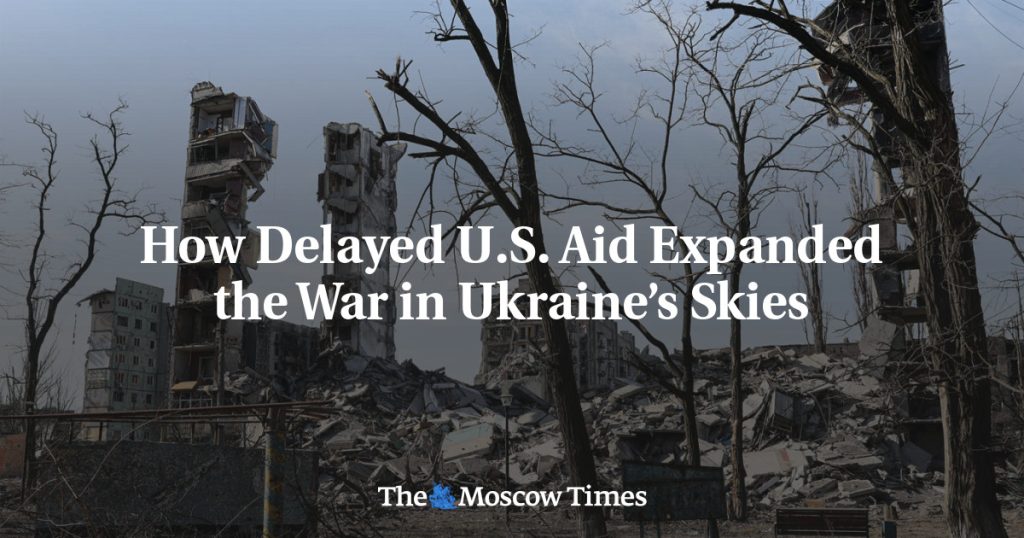After months of delay due to partisan infighting in Congress, President Joe Biden signed a $61 billion aid package for Ukraine, showing continued support against Russia’s invasion. However, the delay allowed Russia to exploit Ukraine’s weakened air defense system. The aid, even when it arrives, will take weeks to reach the front lines, giving Russia an advantage. Russian strikes have intensified, causing significant damage to cities and infrastructure, impacting Ukraine’s ability to intercept missiles.
The war in the skies has taken a toll, with Russia employing various tactics to overwhelm Ukraine’s air defenses. Russia’s use of cruise missiles, drones, and ballistic missiles has increased, with Ukraine struggling to intercept them. Strategic developments like glide bombs have proven effective in causing destruction on the front lines. Kyiv has been forced to prioritize air defense assets to protect population centers, leaving the front lines vulnerable to Russian attacks.
Efforts to replenish Ukraine’s air defense systems are ongoing, but challenges remain. The U.S. and European allies are working to provide Patriot air defense batteries, crucial for intercepting Russia’s hypersonic missiles. Discussions are complicated by countries seeking compensation for their donations, with limited resources hindering Ukraine’s ability to defend its entire territory. The fear of escalating the war has delayed the provision of weaponry capable of striking targets in Russia.
Washington’s reluctance to send advanced weaponry to Ukraine has hindered efforts to bolster its defenses. The recent shipment of long-range missiles to Ukraine and the possible delivery of F-16 fighter jets have raised concerns about Russia’s air defenses and the effectiveness of these weapons. Ukraine’s ability to strike back at Russian targets remains limited, requiring ongoing support from allies for expensive equipment and ammunition.
The city of Kharkiv has been heavily targeted by Russian missile and drone attacks, leaving residents in constant fear. Infrastructure damage and power outages have worsened living conditions, with concerns that Russia aims to depopulate the city through intensive bombardment. U.S. support brings relief to Kharkiv residents, but resentment lingers over the delayed aid and the lives lost. The reliance on allies for protection, coupled with limited options to strike back, raises challenges for Ukraine’s defense.
The ability of Kyiv’s allies to continue supplying weapons to Ukraine is crucial for its defense against Russia. Despite international sanctions, Russia has strengthened its production capabilities, outpacing Ukraine in munitions. Delays in aid and Europe’s failure to ramp up production have favored Russia in the conflict. The ongoing need for support highlights the importance of international cooperation in bolstering Ukraine’s defenses against Russian aggression.


